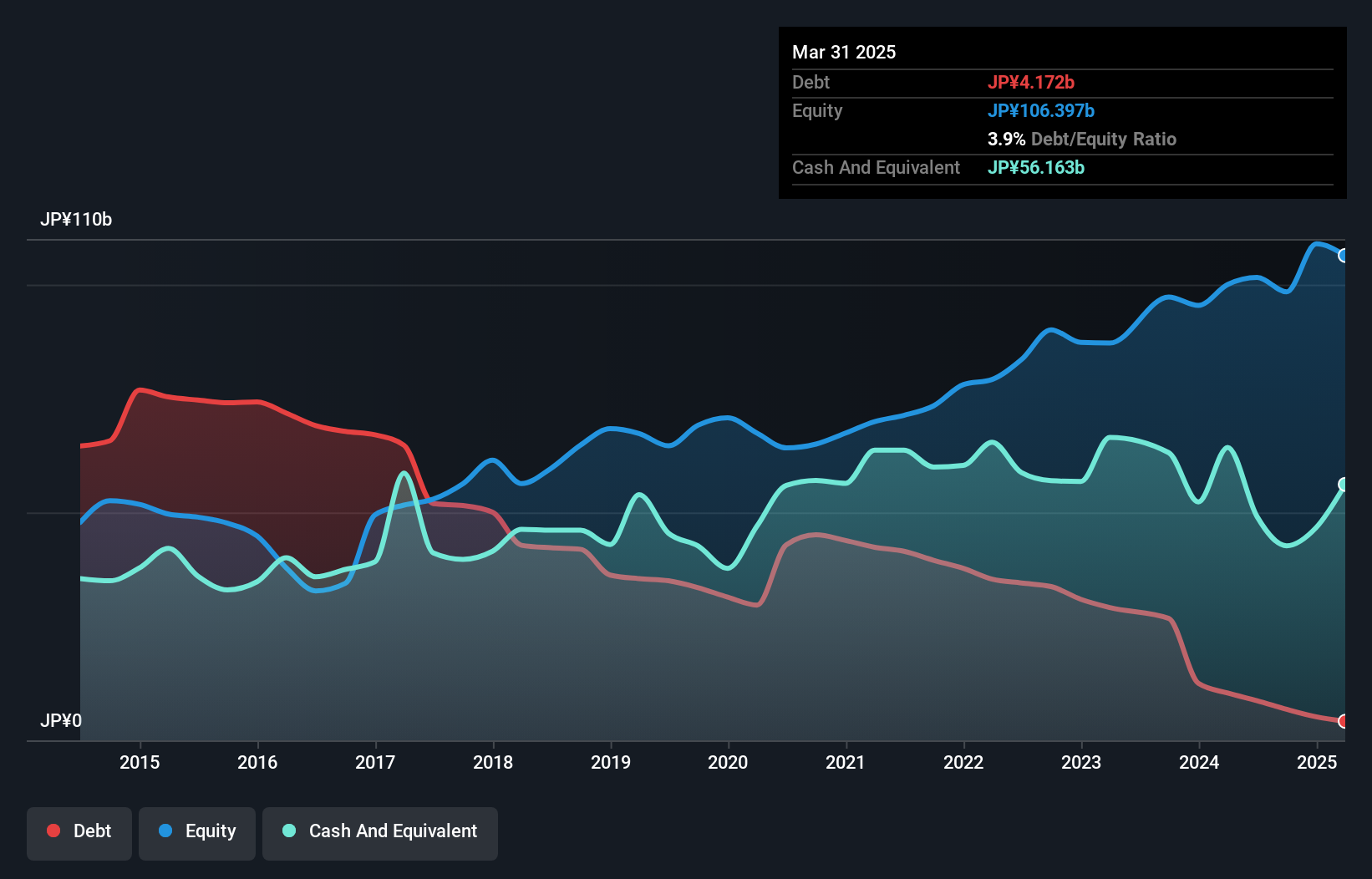Some say volatility, rather than debt, is the best way to think about risk as an investor, but Warren Buffett famously said that 'Volatility is far from synonymous with risk.' It's only natural to consider a company's balance sheet when you examine how risky it is, since debt is often involved when a business collapses. We note that TOMY Company, Ltd. (TSE:7867) does have debt on its balance sheet. But is this debt a concern to shareholders?
When Is Debt A Problem?
Debt and other liabilities become risky for a business when it cannot easily fulfill those obligations, either with free cash flow or by raising capital at an attractive price. If things get really bad, the lenders can take control of the business. However, a more common (but still painful) scenario is that it has to raise new equity capital at a low price, thus permanently diluting shareholders. By replacing dilution, though, debt can be an extremely good tool for businesses that need capital to invest in growth at high rates of return. The first thing to do when considering how much debt a business uses is to look at its cash and debt together.
What Is TOMY Company's Debt?
As you can see below, TOMY Company had JP¥4.17b of debt at March 2025, down from JP¥10.4b a year prior. However, its balance sheet shows it holds JP¥56.2b in cash, so it actually has JP¥52.0b net cash.

How Healthy Is TOMY Company's Balance Sheet?
According to the last reported balance sheet, TOMY Company had liabilities of JP¥50.9b due within 12 months, and liabilities of JP¥8.44b due beyond 12 months. Offsetting this, it had JP¥56.2b in cash and JP¥29.3b in receivables that were due within 12 months. So it actually has JP¥26.1b more liquid assets than total liabilities.
This surplus suggests that TOMY Company has a conservative balance sheet, and could probably eliminate its debt without much difficulty. Simply put, the fact that TOMY Company has more cash than debt is arguably a good indication that it can manage its debt safely.
Check out our latest analysis for TOMY Company
On top of that, TOMY Company grew its EBIT by 32% over the last twelve months, and that growth will make it easier to handle its debt. When analysing debt levels, the balance sheet is the obvious place to start. But ultimately the future profitability of the business will decide if TOMY Company can strengthen its balance sheet over time. So if you want to see what the professionals think, you might find this free report on analyst profit forecasts to be interesting.
But our final consideration is also important, because a company cannot pay debt with paper profits; it needs cold hard cash. While TOMY Company has net cash on its balance sheet, it's still worth taking a look at its ability to convert earnings before interest and tax (EBIT) to free cash flow, to help us understand how quickly it is building (or eroding) that cash balance. Over the last three years, TOMY Company recorded free cash flow worth a fulsome 83% of its EBIT, which is stronger than we'd usually expect. That puts it in a very strong position to pay down debt.
Summing Up
While it is always sensible to investigate a company's debt, in this case TOMY Company has JP¥52.0b in net cash and a decent-looking balance sheet. And it impressed us with free cash flow of JP¥9.1b, being 83% of its EBIT. So we don't think TOMY Company's use of debt is risky. There's no doubt that we learn most about debt from the balance sheet. But ultimately, every company can contain risks that exist outside of the balance sheet. These risks can be hard to spot. Every company has them, and we've spotted 1 warning sign for TOMY Company you should know about.
Of course, if you're the type of investor who prefers buying stocks without the burden of debt, then don't hesitate to discover our exclusive list of net cash growth stocks, today.
Valuation is complex, but we're here to simplify it.
Discover if TOMY Company might be undervalued or overvalued with our detailed analysis, featuring fair value estimates, potential risks, dividends, insider trades, and its financial condition.
Access Free AnalysisHave feedback on this article? Concerned about the content? Get in touch with us directly. Alternatively, email editorial-team (at) simplywallst.com.
This article by Simply Wall St is general in nature. We provide commentary based on historical data and analyst forecasts only using an unbiased methodology and our articles are not intended to be financial advice. It does not constitute a recommendation to buy or sell any stock, and does not take account of your objectives, or your financial situation. We aim to bring you long-term focused analysis driven by fundamental data. Note that our analysis may not factor in the latest price-sensitive company announcements or qualitative material. Simply Wall St has no position in any stocks mentioned.
About TSE:7867
TOMY Company
Plans, manufactures, and sells toys, general merchandise, card games, and baby care products.
Flawless balance sheet with solid track record and pays a dividend.
Similar Companies
Market Insights
Community Narratives




